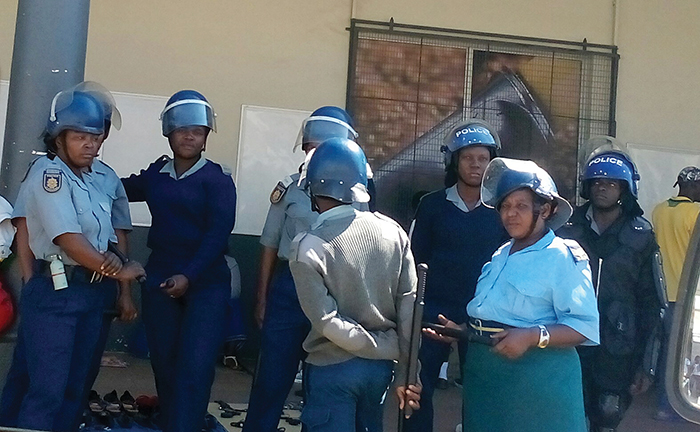
HUMAN rights watchdog, Heal Zimbabwe Trust (HZT) has warned of an increase in violence and political intolerance, especially in Zanu PF, as the ruling party’s December conference nears.
BY NQOBANI NDLOVU
HZT, in its October Conflict Assessment Report, warned the Zanu PF succession issue was likely to further stoke violence, as rival factions position themselves to succeed President Robert Mugabe.
It said political intolerance tops the “nature of conflicts such as intimidation, assaults and open violence affecting communities” countrywide.
“Political conflicts could be on the rise because of the factional politics affecting both the opposition and the ruling parties, the MDC-T and Zanu PF, respectively. In October, Zanu PF structures went into an election mode, as the party began a restructuring process ahead of their non-elective annual conference in December,” HZT said in the report.
“Internal factional violence is likely to continue through to the Zanu PF December conference and beyond given the succession fights within the party. This also applies to the opposition MDC-T that continues to have internal leadership spats, particularly among the party’s president, Morgan Tsvangirai, vice-president, Thokozani Khupe and Nelson Chamisa, the party’s former national organising secretary.”
HZT said communities were against violence and political intolerance, and only wanted the government to better their livelihoods.
“Communities need protection from violence and knowledge of emerging conflicts as well as capabilities to mitigate those conflicts. Communities need specific government policies that will address directly issues affecting their lives and livelihoods sources.
- Chamisa under fire over US$120K donation
- Mavhunga puts DeMbare into Chibuku quarterfinals
- Pension funds bet on Cabora Bassa oilfields
- Councils defy govt fire tender directive
Keep Reading
“The communities have been looking forward to an improved standard of living and a tolerant society that apart from affiliation, culture, ethnicity and religion, the communities can be able to co-exist and develop further their livelihoods,” the organisation said.










